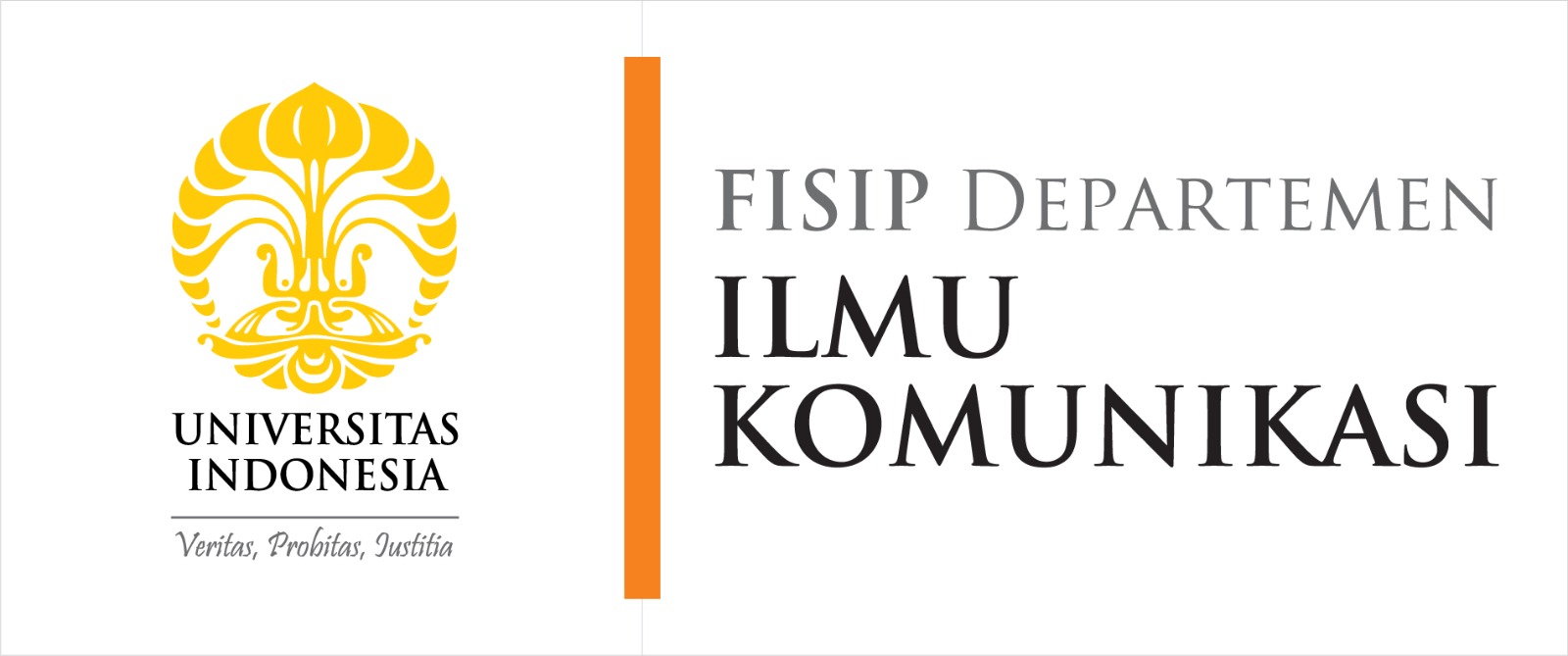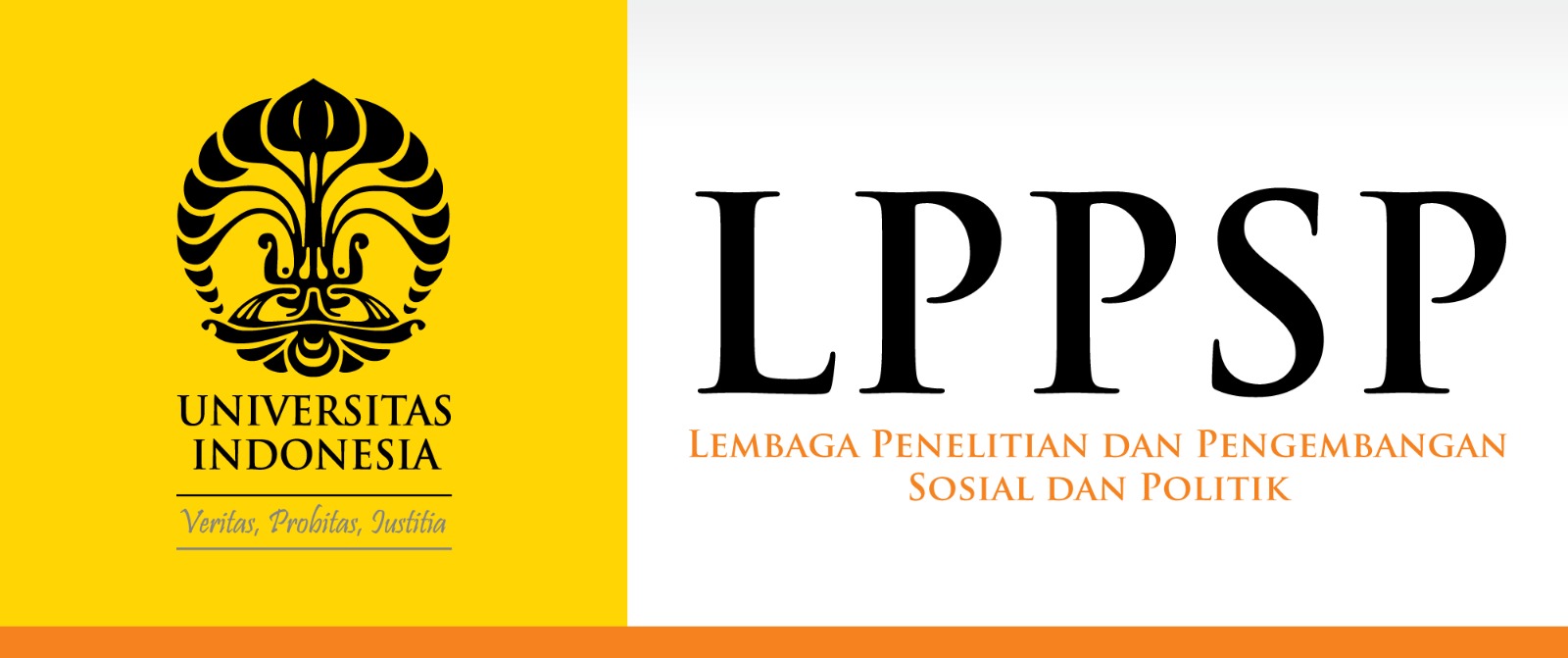JURNAL KOMUNIKASI INDONESIA
Abstract
Intersubjective process of international communication may shape security issue which requires extraordinary policy. This article aimed to analyze how speech acts of a country leader securitize an issue and result in an extraordinary or distinct foreign policy. Donald Trump, the 45th President of the United States of America, demonstrated his blunt talkativeness through social media and formal speech acts, including on the North Korean nuclear issue during his presidency term. Despite of the regular focus placement of North Korea’s nuclear in the United States’ foreign policy since the 1990s, Trump leaves the issue during his campaign. Nevertheless, in 2017, the first year of his term, he shifted to expressing his enmity in line with the enactment of the maximum pressure strategy, which was the heaviest sanctions ever enacted on North Korea. This study applied the securitization theory by analyzing three assumptions that support Trump’s political communication style: the centrality of the audience, co-dependency of agency and context, and dispositive and structuring forces of practices. Using the qualitative-deductive method, this article found that Trump’s speech acts in 2017 securitized the North Korean nuclear threat as an unprecedented threat requiring an extraordinary policy of maximum pressure strategy.
Proses intersubyektif dari komunikasi politik di level internasional dapat membentuk suatu isu keamanan yang membutuhkan suatu kebijakan khusus. Artikel ini bertujuan untuk melakukan analisis bagaimana–tindak tutur (speech act) pemimpin suatu negara dalam melakukan sekuritisasi terhadap isu tertentu untuk menetapkan kebijakan luar negeri yang berada di luar kelaziman. Donald Trump, Presiden Amerika Serikat ke-45, seringkali melakukan komunikasi internasional secara blak-blakan melalui media sosial maupun pernyataan formal, termasuk mengenai isu nuklir Korea Utara. Meskipun isu nuklir Korea Utara sudah menjadi salah satu fokus kebijakan luar negeri Amerika Serikat sejak 1990-an, Trump tidak menjadikan isu ini sebagai salah satu fokus selama kampanyenya. Meskipun demikian, setelah menjabat pada tahun 2017, ia mulai menunjukkan permusuhan dengan Korea Utara melalui pemberlakuan strategi maximum pressure, yang merupakan sanksi terberat yang pernah diberlakukan kepada Korea Utara. Studi ini menggunakan teori sekuritisasi dengan menganalisis tiga asumsi yang mendukung tindak tutur Trump: sentralitas audiens, saling-ketergantungan antara agen dan konteks, serta dispositif dan kekuatan struktur praktik. Dengan menggunakan metode kualitatif-deduktif, studi ini menemukan bahwa tindak tutur Trump pada tahun 2017 berhasil mengangkat ancaman nuklir Korea Utara ke level yang belum pernah terjadi sebelumnya dan membutuhkan kebijakan baru di luar kelaziman selama ini, yaitu strategi maximum pressure.
References
Aini, R. Q., & Kurniawan, Y. (2021). Quasi-Alliance at Play: The Curi- ous Case of South Korea s Aborted Withdrawal from GSOMIA in 2019. Jurnal Ilmu Sosial Dan Ilmu Politik, 24(3). https://doi. org/10.22146/JSP.59148
Anderson, N. (2017). America’s North Korean nuclear trilemma. Washington Quarterly, 40(4). https://doi.org/10.1080/016366 0X.2017.1406715
Arms Control Association. (2020). Fact Sheets and Briefs: Chronology of US - North Korea Nuclear and Missile Diplomacy. https://www. armscontrol.org/factsheets/dprkchron#2017
Bakich, S. D. (2020). Signaling capacity and crisis diplomacy: Explain- ing the failure of ‘maximum pressure’ in the 2017 U.S.-North Korea nuclear crisis. Journal of Strategic Studies. https://doi.or g/10.1080/01402390.2020.1755960
Balzacq, T. (2005). The three faces of securitization: Political agency, audience, and context. European Journal of International Rela- tions, 11(2). https://doi.org/10.1177/1354066105052960
Balzacq, T. (2011). Securitization Theory: How Security Problems Emerge and Dissolve. Routledge.
BBC. (2017, 5 September). North Korea nuclear crisis: Putin calls sanc- tions useless. BBC News. https://www.bbc.com/news/world- asia-41158281
Bigo, D. (2016). Rethinking the International through Dynamics of Pow- er. In T. Basaran, D. Bigo, E.-P. Guittet, & R. B. J. Walker (Eds.), International Political Sociology: Transversal Lines (pp. 43–73). Routledge.
Booth, K. (2007). Theory of World Security. Cambridge University
Press. Bryman, A. (2012). Social Research Methods (4th ed.). Oxford Univer- sity Press.
Buzan, B., & Wæver, O. (2003). Regions and Power: The Structure of In- ternational Security (B. Buzan & O. Waever, Eds.). Cambridge University Press.
Buzan, B., Wilde, J. de, & Wæver, O. (1998). Security: A New Framework for Analysis. Lynne Rienner Publisher.
Chanlett-Avery, E., Manyin, M. E., Nikitin, M. B. D., Campbell, C. E., & Mackey, W. (2018). North Korea: US Relations, Nuclear Diplo- macy, and Internal Situation. Congressional Research Service.
Chomsky, N., & Polychroniou, C. J. (2021). The Precipice: Neoliberal- ism, the Pandemic, and the Urgent Need for Radical Change. Penguin Books.
Coskun, B. B. (2011). Analysing Desecuritisation: The Case of Israeli-Pal- estinian Peace Education and Water Management. Cambridge Security Publishing.
Dian, M. (2018). Trump’s Mixed Signals toward North Korea and US-led Alliances in East Asia. International Spectator, 53(4). https://doi. org/10.1080/03932729.2018.1519961
Hagström, L., & Lundström, M. (2019). Overcoming US-North Korean Enmity: Lessons from an Eclectic IR Approach. International Spectator, 54(4). https://doi.org/10.1080/03932729.2019.1675 278
Howard, P. (2004). Why not invade North Korea? Threats, language games, and US foreign policy. International Studies Quarterly, 48(4). https://doi.org/10.1111/j.0020-8833.2004.00326.x
Husenicova, L. (2018). US Foreign Policy Towards North Korea. Inter- national Studies. Interdisciplinary Political and Cultural Journal, 22(1). https://doi.org/10.18778/1641-4233.22.05
Ifft, E. (2020). Lessons for Negotiating with North Korea. Survival, 62(1). https://doi.org/10.1080/00396338.2020.1715069
Kim, S. Han, & Snyder, S. A. (2019). Denuclearizing North Korea: Time for Plan B. Washington Quarterly, 42(4). https://doi.org/10.1080/ 0163660X.2019.1694271
Kurniawan, Y. (2018). The Politics of Securitization in Democratic Indo- nesia. Palgrave Macmillan. Lee, F. E. (2018). The 115th Congress and questions of party uni- ty in a polarized era. Journal of Politics, 80(4). https://doi. org/10.1086/699335
Ludvik, J. (2019). Strategic Patience Revisited: The Counterforce Effect. Washington Quarterly, 42(4). https://doi.org/10.1080/016366 0X.2019.1694297
Manyin, M. E., Chanlett-Avery, E., & Nikitin, M. B. E. (2021). Nuclear Ne- gotiations with North Korea. Congressional Research Service.
Manyin, M. E., Nikitin, M. B. D., & Smith, K. (2021). North Korea: A Chronology of Events from 2016—2020. Congressional Re- search Service.
Masni, M. (2021). Norm Exemption in States’ NPT Nuclear Disarmament Obligations. Global: Jurnal Politik Internasional, 23(1). https:// doi.org/10.7454/global.v23i1.489
McDonald, M. (2008). Securitization and the construction of security. European Journal of International Relations, 14(4). https://doi. org/10.1177/1354066108097553
Moon, W. (2019). Initiating a cooperative denuclearization effort with North Korea. Nonproliferation Review, 26(5–6). https://doi.org/ 10.1080/10736700.2019.1692551
Moore, G. J. (2008). America’s failed North Korea nuclear policy: A new approach. Asian Perspective, 32(4). https://doi.org/10.1353/ apr.2008.0002
Nakashima, E., Fifield, A., & Warrick, J. (2017, 25 July). North Ko- rea could cross ICBM threshold next year, US officials warn in new assessment—The Washington Post. https://www. washingtonpost.com/world/national-security/nor th-korea- could-cross-icbm-threshold-next-year-us-officials-warn-in- new-assessment/2017/07/25/4107dc4a-70af-11e7-8f39-eeb- 7d3a2d304_story.html
Neuman, W. L. (2014). Social Research Methods: Qualitative and Quan- titative Approaches (7th ed.). Pearson Education Limited.
Nikitin, M. B. D. (2022). North Korea’s Nuclear Weapons and Missile Programs. Congressional Research Service. https://crsreports. congress.gov/product/pdf/IF/IF10472/22
Riyanto, S. (2019). The United States Interest Behind The North Korea Missile Crisis. Journal of Diplomacy and International Studies, 2(1), 13–20.
Salter, M. B. (2008). Securitization and desecuritization: A dramaturgical analysis of the Canadian Air Transport Security Authority. Jour- nal of International Relations and Development, 11(4). https:// doi.org/10.1057/jird.2008.20
Sigal, L. V. (2020). Paved with Good Intentions: Trump’s Nuclear Diplo- macy with North Korea. Journal for Peace and Nuclear Disar- mament, 3(1). https://doi.org/10.1080/25751654.2020.1751549
Stritzel, H. (2007). Towards a theory of securitization: Copenhagen and beyond. European Journal of International Relations, 13(3). https://doi.org/10.1177/1354066107080128
Sulaiman, V. Z. A. (2020). China’s Policy in Refusing North Korea Nuclear Proliferation. Global: Jurnal Politik Internasional, 22(1). https:// doi.org/10.7454/global.v22i1.481
Syahrin, M. N. A. (2018). Donald Trump dan Reorientasi Kebijakan Kea- manan Amerika Serikat Terhadap Program Pengembangan Senjata Nuklir Korea Utara. Jurnal Ilmiah Hubungan Internasi- onal, 14(1). https://doi.org/10.26593/jihi.v14i1.2717.97-111
Syawfi, I., & Cahyadi, R. (2021). Russia’s Failure as a Benign Hegemon: The Domination of Hobbesian Culture in the 2008 Russo-Geor- gian War. Global: Jurnal Politik Internasional, 23(1). https://doi. org/10.7454/global.v23i1.522
Trump, D. J. (2017a, 6 March). Readout of the President’s Calls with Prime Minister Shinzo Abe of Japan and Acting President Hwang Kyo-Ahn of South Korea – The White House. https:// trumpwhitehouse.archives.gov/briefings-statements/readout- presidents-calls-prime-minister-shinzo-abe-japan-acting-presi- dent-hwang-kyo-ahn-south-korea/ Trump, D. J. (2017b, 24 April). Remarks by President Trump at a Work- ing Lunch with UN Security Council Ambassadors – The White House. https://trumpwhitehouse.archives.gov/briefings-state- ments/remarks-president-trump-working-lunch-u-n-securi- ty-council-ambassadors/
Trump, D. J. (2017c, 2 May). Readout of President Donald J. Trump’s Call with President Vladimir Putin of the Russian Federation – The White House. https://trumpwhitehouse.archives.gov/brief- ings-statements/readout-president-donald-j-trumps-call-presi- dent-vladimir-putin-russian-federation-2/
Trump, D. J. (2017d, 21 June). A Message to the Congress of the United States on the Continuation of the National Emergency with Respect to North Korea – The White House. https://trump- whitehouse.archives.gov/presidential-actions/message-con- gress-united-states-continuation-national-emergency-re- spect-north-korea/
Trump, D. J. (2017e, 8 July). Readout of President Donald J. Trump’s Meeting with President Joko Widodo of Indonesia – The White House. https://trumpwhitehouse.archives.gov/briefings-state- ments/readout-president-donald-j-trumps-meeting-presi - dent-joko-widodo-indonesia/
Trump, D. J. (2017f, 8 July). Remarks by President Trump and Prime Min- ister Abe of Japan Before Bilateral Meeting – The White House. https://trumpwhitehouse.archives.gov/briefings-statements/ remarks-president-trump-prime-minister-abe-japan-bilater- al-meeting/
Trump, D. J. (2017g, 2 August). Statement by President Donald J.Trump on Signing the “Countering America’s Adversaries Through Sanctions Act” – The White House. https://trumpwhitehouse. archives.gov/briefings-statements/statement-president-don- ald-j-trump-signing-countering-americas-adversaries-sanc- tions-act/
Trump, D. J. (2017h, 19 September). Readout of President Donald J. Trump’s Meeting with President Emmanuel Macron of France – The White House. https://trumpwhitehouse.archives.gov/ briefings-statements/readout-president-donald-j-trumps-meet- ing-president-emmanuel-macron-france/
Trump, D. J. (2017i, September 19). Remarks by President Trump to the 72nd Session of the United Nations General Assembly – The White House. https://trumpwhitehouse.archives.gov/brief- ings-statements/remarks-president-trump-72nd-session-unit- ed-nations-general-assembly/
Trump, D. J. (2017j, September 20). Remarks by President Trump at Working Lunch with African Leaders – The White House. https://trumpwhitehouse.archives.gov/briefings-statements/re- marks-president-trump-working-lunch-african-leaders/
Trump, D. J. (2017k, 24 October). President Donald J. Trump Proclaims 24 October, 2017, as United Nations Day – The White House. https://trumpwhitehouse.archives.gov/presidential-actions/ president-donald-j-trump-proclaims-october-24-2017-united- nations-day/
Trump, D. J. (2017l, 6 November). Remarks by President Trump and Prime Minister Abe of Japan in Joint Press Conference | Tokyo, Japan – The White House. https://trumpwhitehouse.archives. gov/briefings-statements/remarks-president-trump-prime-min- ister-abe-japan-joint-press-conference-tokyo-japan/
Trump, D. J. (2017m, 15 November). Remarks by President Trump on His Trip to Asia – The White House. https://trumpwhitehouse. archives.gov/briefings-statements/remarks-president-trump- trip-asia/
Trump, D. J. (2017n, 18 December). Remarks by President Trump on the Administration’s National Security Strategy – The White House. https://trumpwhitehouse.archives.gov/briefings-statements/re- marks-president-trump-administrations-national-security-strat- egy/
Vuori, J. A. (2008). Illocutionary logic and strands of securitization: Ap- plying the theory of securitization to the study of non-democrat- ic political orders. European Journal of International Relations, 14(1). https://doi.org/10.1177/1354066107087767
Watterson, C. J. (2019). What next for sanctions against North Korea? Bulletin of the Atomic Scientists, 75(5). https://doi.org/10.1080 /00963402.2019.1654270
Wertz, D. (2018). The US, North Korea, and Nuclear Diplomacy. The Na- tional Committee of North Korea.
Zimmer, B., & Pandya, K. (2020). Logical Engagement: Using Positive Sanctions to Coerce North Korea. Security Challenges, 16(4), 99–116.
Recommended Citation
Rubini, Nida and Kurniawan, Yandry
(2021)
"Donald Trump’s Securitizing Speech Acts and theUnited States Maximum-Pressure Strategy towardsNorth Korea in 2017,"
JURNAL KOMUNIKASI INDONESIA: Vol. 10:
No.
2, Article 2.
DOI: 10.7454/jki.v10i2.13875
Available at:
https://scholarhub.ui.ac.id/jkmi/vol10/iss2/2
Included in
Gender, Race, Sexuality, and Ethnicity in Communication Commons, International and Intercultural Communication Commons, Social Influence and Political Communication Commons




